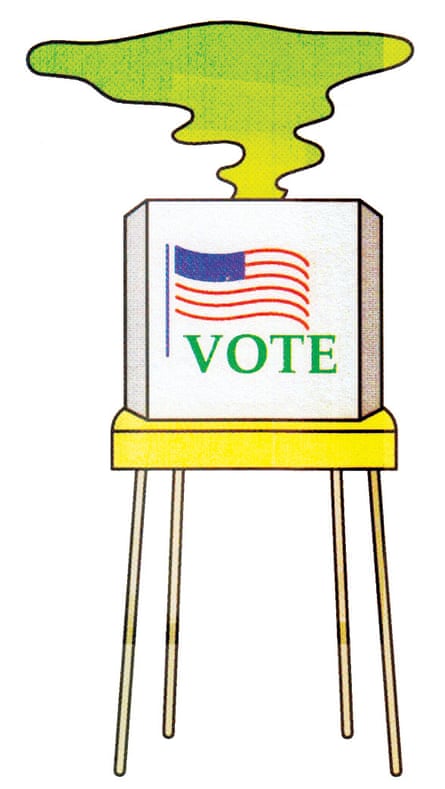With the US weeks away from the most contentious midterm election in at least a generation, Americans of all political persuasions increasingly want marijuana to be legal.
Two-thirds of the country favor recreational legalization and polls consistently show support for medical use well above 80%. In 1996 when California became the first state to allow medical use, roughly one in four Americans wanted to legalize the drug. Since then there has been a seismic shift, and today, according to the data site FiveThirtyEight, support for legalization is among the least divisive issues in the country.
Refreshingly, public opinion on marijuana policy refuses to conform to the country’s familiar red state/blue state divide. While legalization is somewhat more popular with Democrats, it has long attracted supporters from the libertarian right.
With public opinion strongly in favor of legalization, it has become the default position for Democrats, while political realities have pushed Republicans in the same direction.
Now that 31 states allow medical use, support for legalization has climbed amid perceptions that cannabis may be a treatment option for veterans with post-traumatic stress disorder and could be an “exit drug” for people addicted to opioids. The evidence that marijuana relieves these overlapping scourges is still more anecdotal than scientific, but both have been hard-felt in conservative, rural areas. Hope for relief has led veterans, a traditionally right-leaning constituency, to overwhelmingly support medical marijuana research.

The dynamic was apparent in June, when voters in deep-red Oklahoma approved a permissive medical marijuana law. Polls suggest voters in conservative Utah will comfortably pass a stricter medical marijuana law on election day, despite initial opposition from the Mormon church, the state’s most important institution. The religion, which doesn’t permit consumption of alcohol or caffeine, has become comfortable with doctor-supervised medical marijuana use but not recreational use, whether legal or not.
In November, legalization proponents hope to unseat Congressman Pete Sessions, a Texas Republican who has blocked votes on modest measures like allowing Veterans Administration doctors to recommend medical marijuana in states where it’s legal. Sessions (no relation to the anti-legalization US attorney general, Jeff Sessions) is in a competitive race and recently met with mothers who advocate for research into cannabis as a treatment for autism.
Sessions’ opponent, Colin Allred, is a civil rights attorney and former NFL player who supports medical marijuana legalization. (Former NFL players who suffer severe chronic health problems, are a small but influential constituency that has advanced acceptance of medical marijuana.)
One unusual aspect of the legalization debate as it plays politically is that with few exceptions, neither supporters nor opponents are especially eager to discuss marijuana and the consequences of legalization.
The cannabis industry sees itself as an engine for creating jobs and offering the public a safer alternative to alcohol, but very few public officials are willing to go that far. Instead both Democrats and Republicans emphasize the potential benefits for veterans, and oppose harsh penalties for minor marijuana offenses. I’ve yet to hear a politician say it will be a net benefit to society when every American adult has access to weed. Substantial campaign donations await whoever is willing to make the case.
Legal, commercial marijuana may yet prove to be beneficial. But as access becomes easier, it’s also likely to become clear that there are drawbacks to many more Americans spending much more of their lives high. When that happens it’s possible to imagine Democrats calling for tighter control of legal cannabis and the industry gravitating to the anti-regulation GOP.
Until then, politicians of both parties have absorbed the lesson: no one wins votes by taking away the people’s weed.
